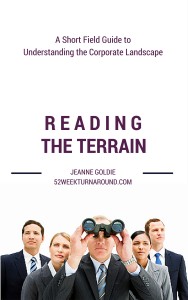
3 Tests for Business Books. Or why I don’t own a Button shop.
My friend Kimberly has a very wry sense of humor, I often threaten to collect her retorts and package them into a book called “The Wisdom of Kimberly.” Years ago, we both enjoyed and subscribed to a magazine called Victoria. Beautifully designed, with gorgeous photography and articles on gracious living it also often featured 1-3 page articles on (mostly) women entrepreneurs who ran shops or small artisan businesses. The articles were beautifully photographed, filled with close ups of the stunning details of the products, or representations of the services provided. The businesses ranged from small letterpress printers, to event planners, jewelry designers, potters who designed garden planters, even a woman who ran an antique button store in Manhattan. Ina Garten (Food network) was featured. The magazine developed a devoted, but small, following. It published several books as off shoots, including one on women owned businesses and another devoted solely to business cards. It published from the mid 80’s until about the mid 90’s, and then folded.
About 6 years ago, Victoria revived itself. Taking note of the very loyal following, the new publishers managed to assemble much of the original staff, writers and photographers, then sent out subscriber cards to former subscribers. Kimberly and I dutifully re-subscribed. The first few issues arrived, beautiful to look at, with many of the same type stories: houses, gardens, fashion and women entrepreneurs. And I looked at all the beautiful detail and went “meh”. (Okay international readers, picture someone shrugging and just not being impressed. That’s “meh”.) I reached out, called the intrepid Kimberly and asked her why the magazine left me unimpressed. After all, I still lived in a 100 year old home, liked many of the products and fashion designers that were featured, work in my garden and try to entertain occasionally.
Kimberly summed it up in a single line. “Because we now know that the only way anyone runs an antique button store successfully is if they are married to an investment banker.” Bless you Kimberly. Right again.
Which brings me to business books. If you write a business book with your favorite theory you’ve got to find shining examples that support your theory. And you may, or may not, ignore anything else about those businesses that contradicts your theory or might indicate they might not be around for the long run. (Good old confirmation bias at work again!). If you look hard enough you can probably find business books that celebrated the leadership of Enron, Bear Stearns and any number of now defunct businesses.
So before you decide to fully embrace a business theory or business plan, consider these three things:
1. Is it Replicable with the resources available to a person or company in your current position?
You can learn great lessons from the experiences of many different business leaders, but it is important to dig below the surface to make sure you’re seeing the whole story. Were the connections or resources available to them vastly different than yours? Don’t let it discourage you, but do factor it into estimates of your ramp up time and need for resources. Realize these sorts of details are often glossed over or even rewritten for better storytelling.
2. Were other factors more critical to the final success than the theory being promoted by the author?
“Great Customer Service” as a leading strategy for business success is the subject of several thousand business books on amazon.com. No doubt it is critical to many businesses and can be a key component in success. But were there other factors that may have propelled the featured business to prominence? Was it time to market? Position on adaption curve? Uniqueness of position for a period of time? It’s rare that a business will cop to “lousy customer service” when telling their story, but what else made that business successful in combination with “great customer service?”
3. Just how deeply did the author probe for statistically measurable indicators and answers, or is most of the information cited on the companies profiled derived from self-created press releases, motivational anecdotes or puff piece stories?
Just yesterday someone brought my attention to an article profiling a business known for “Great Customer Service”. The author, however, had apparently never even Googled the head of the company who had led a similar previous company to a particularly public and notorious flame out. Ironically, this was published in a local paper, where a mere check of their own archives would have detailed out this info. Now perhaps this could have been a great story on lessons learned and new beginnings, but the past was not even given a nod. Anyone with a reasonable knowledge of that company and in that industry would have called “BS” in ten seconds (most especially some of its creditors). But what if you were reading it and didn’t know that history?
Business books, entrepreneur profiles, even blogs like these, can often leave out key pieces of information. Read broadly, take great ideas and learn from others’ mistakes but don’t discount your own experience. Play devils advocate; have others succeeded by doing the exact opposite of what is being touted as the “key to success?” Critical thinking is key. What will YOUR path look like?
P.S. I have no idea if the owner of Tender Buttons in Manhattan is/was actually married to an investment banker, but I do salute anyone who can make an antique button store run for over 50 years. Happy Birthday Tender Buttons! and may there be many more.
P.P.S. Tender Buttons closed in 2019….it was an amazing run.

Sizing up a business to buy or a corporation to join? The culture can be as important as the bottom line. Get your free copy of Reading the Terrain here!